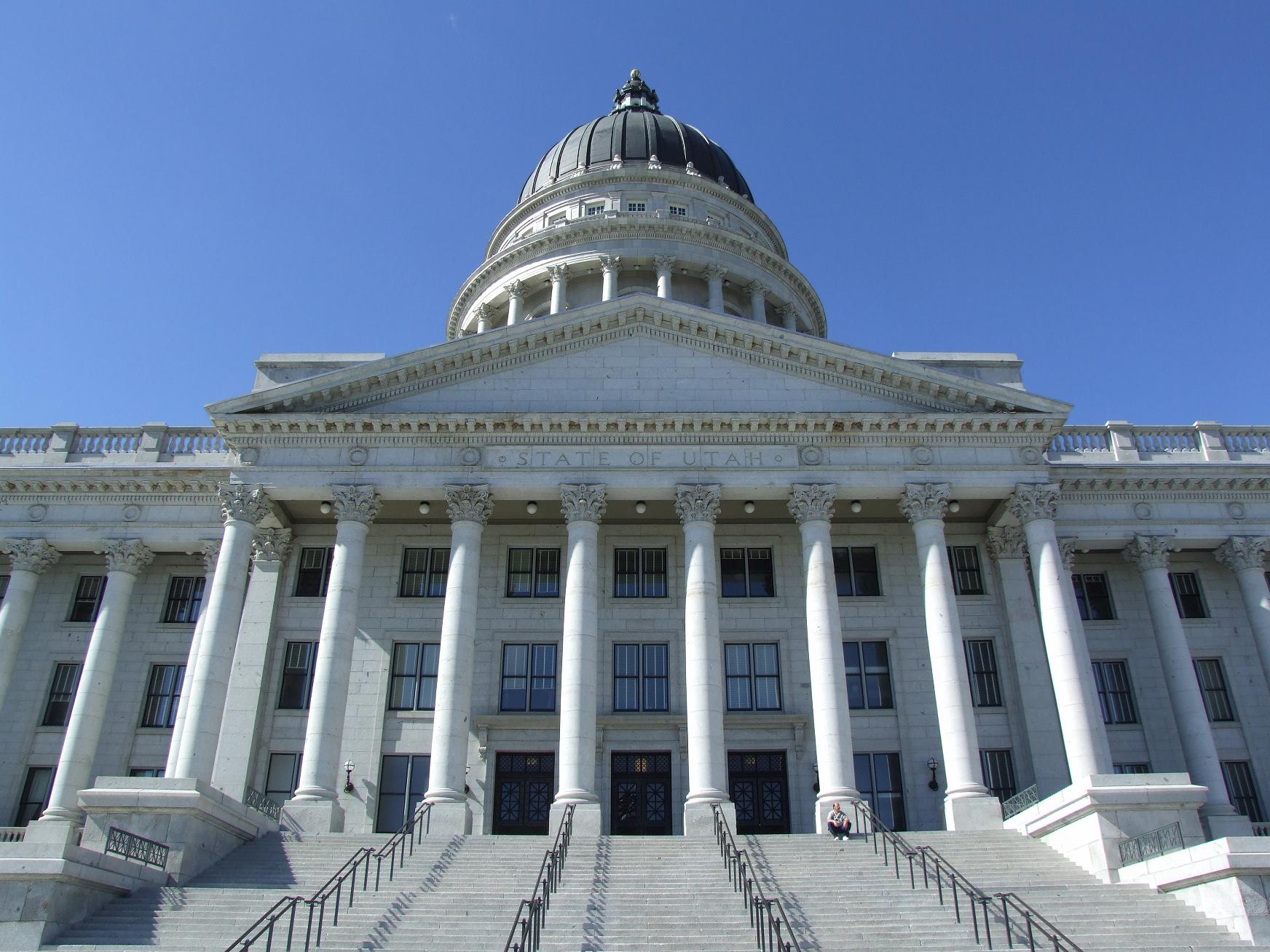
Two different referendum petitions were filed this week targeting the repeal of Utah Senate Bill 2001, which was passed by the Utah Legislature in a special session on December 12, 2019. The bill, sponsored by Republican Senator Lyle Hillyard of District 25, passed in the Senate by a vote of 20-7 with two senators absent or not voting and passed with amendments in the House by a vote of 43-27 with five representatives absent or not voting. The Senate concurred with the House's amendments and passed the bill in a vote of 19-7 with three senators absent or not voting. Utah has a Republican state government trifecta.
Among other things, SB 2001 was designed to make the following changes:
1. decrease the individual income tax rate;
2. decrease the corporate franchise tax and corporate income tax rate;
3. changes how the personal exemption tax credit is calculated;
4. creates a nonrefundable tax credit for social security benefits;
5. increases the sales tax on food and food ingredients;
6. creates a refundable grocery tax credit;
7. creates a sales tax exemption for menstrual products; and
8. creates a tax on gasoline (motor fuel) and special fuels, adds a new tax on diesel fuel.
A veto referendum is a type of citizen-initiated ballot measure that asks voters whether to uphold or repeal a law passed by the state legislature. The veto referendum ballot measure is also known as a popular referendum, people's veto, or citizen's veto. There are 23 states that have a process for veto referendums.
One of the referendum petitions was filed on December 16, 2019, by individuals including former state representative Fred Cox (R), Utahns Against Hunger executive director Gina Cornia, and Utah Justice Coalition executive director Darcy Van Orden. Sponsors of the effort indicated they would not use paid signature gatherers. Cox said the sales tax increase on food and the new gasoline tax created by the bill is a combination that is "going to hit people very hard."
A second referendum was filed on December 17, 2019, by The People's Right, which stated it would use paid signature gatherers. Steve Maxfield, chair of The People's Right, wrote, "[Sponsors of] the previous application will not use paid signature gatherers in order to obtain the well over 100,000 valid signatures, even if they can [obtain the signatures], they will not be able to stop the special interests [from] knocking off at least one of the 15 counties required. ... With that stark reality, TPR is forced to file its own competing referendum with the stated intent to use paid signature gatherers."
To qualify for the 2020 ballot, 115,869 valid signatures are required. For referendum petitions, signatures must be collected from each of at least 15 of the 29 counties in Utah equal to 8% of active voters. Signatures for veto referendums must be submitted on a 14-day rolling basis and must all be submitted within 40 days of the adjournment of the legislative session at which the targeted bill was passed.
Signatures for the referendums are due on January 21, 2020, 40 days after the second special session ended on December 12, 2019.
Utah is the only state where voters have repealed every law put before them through the veto referendum process. Since 1954, there have been four veto referendums on the ballot in Utah, all of which were rejected by voters. The most recent was in 2007 when voters rejected a school voucher program.
There are currently four constitutional amendments certified to appear on the statewide ballot in Utah in November 2020, all of which were referred to the ballot by the state legislature.
Click here to learn more.
Additional Reading:


